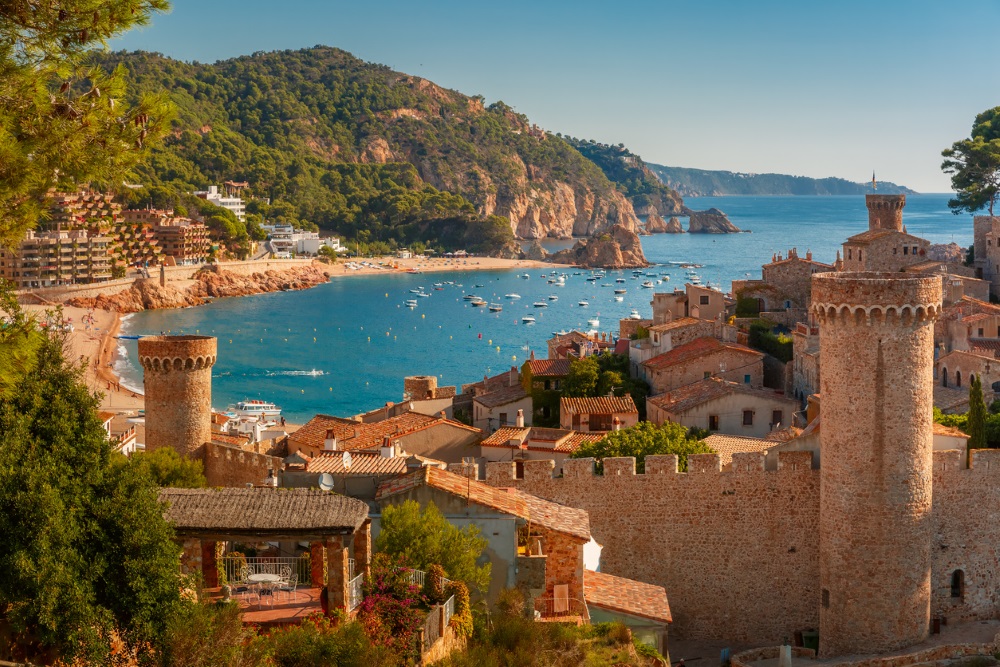
If you’re approaching your golden years, you may be thinking of doing what thousands have done before you – moving to Europe and enjoying all the sun and culture the continent has to offer.ove overseas.
However there are many things to consider when looking for the perfect country to retire to, such as affordability, climate, locale and quality of life, making the choice of where to spend your retirement more difficult than you might expect.
In order to give you an idea of where to look, we’ve created our pick of the top ten European retirement locations.


Portugal
If you’re looking for a country that enjoys a Mediterranean climate but doesn’t necessarily come with the higher costs associated with living next to the Mediterranean Sea, you may want to consider retiring to Portugal.
A small country right on the southern tip of the continent, Portugal offers great lifestyle diversity, with property options ranging from quaint mountainous retreats to expansive coastal properties.
Portugal also offers great value for money, with the cost of living being considerably lower than many other European locations. You should be able to live off less than €1400 a month quite comfortably if you’re renting an apartment in a provincial city.
Those looking to buy property can also pick up a bargain as prices are still much lower than five years ago as the economy recovers from the Eurozone crisis of 2012. This event also led to the introduction of an exemption on tax for foreign incomes for those buying property, an amazing prospect for those claiming a state pension back home.
You may also find that you’re able to integrate into the local community quite easily thanks to the sunny disposition of its citizens and the fact that English is widely spoken by many of the younger generations.


Spain
Similarly to neighbouring Portugal, Spain offers spectacular weather. The nation also boasts over 3,000 miles of sunny coastline on which to enjoy the laidback lifestyle which is characteristic of the country that invented the siesta.
Spain offers a fairly affordable way of life, with fresh local produce notably cheaper than in other countries thanks to the nation producing a large portion of Europe’s fruit and vegetables. The home grown produce is also used to make the nation’s popular fixed-price lunch specials (or the menú del día) that provides you with two courses and a beverage for as little as €9.
Many expats are also lured to Spain thanks to the relatively low property prices, with two-bedroom homes along the coast being scooped up for €140,000 or less following the recession.
The local populace is known for being extremely welcoming, don’t be shocked to find yourself invited over to a neighbour’s house for dinner within days of moving there!
Furthermore, a rich and diverse mixture of cultures can be enjoyed throughout the country, with its close proximity to North Africa and mixture of European and Islamic influences being particularly evident through the architecture – as typified by the Moorish-built castle Alcázar of Seville, as seen in the television series Game of Thrones.


France
France has long been one of the most popular locations for overseas retirement thanks to its many charms and iconic culture.
While slightly pricier than other countries in Europe, in some areas the cost of living can still be dramatically lower than in the UK. As long as you avoid hotspots like Paris or the Rivera, you’ll likely find that cost of living is surprisingly reasonable.
France’s rich cultural heritage is a pull for many as they seek to enjoy day trips to the capital or to explore the many chateaus and castles that litter the French countryside. For those who enjoy their food and drink, France certainly lives up to its reputation for culinary mastery, with Paris boasting over 70 Michelin-starred restaurants and the country being world renowned for its wine.
Meanwhile, France also offers universal healthcare to its citizens and legal residents (with residency normally taking around five years to obtain) and provides very reasonably-priced private health insurance for those who do not qualify, with the World Health Organization ranking the French healthcare system as one of the best in the world.
France’s position on the continent makes it great for anyone looking to remain close to the UK but have an easy means of exploring the rest of Europe as you’ll have quick access to Spain, Portugal, Germany and a number of other European countries.


Ireland
While Ireland may not be as warm and sunny as some of the other countries on this list, the Emerald Isle still has a lot to offer for those looking for somewhere a bit different.
Even those with only a passing interest in Ireland will know of its rolling green landscapes and the ancient Gaelic lineage that has had a lasting impact on western culture, featuring prominently in many artworks, books and poems.
As the home of Guinness you can expect to be never more than a few minutes away from a true Irish pub, the perfect place to enjoy an outdoor drink in the summer or retreat to in the winter with a good book.
It’s also easy to integrate into the local community as while the official first language is Irish (Gaelic), English is almost universally spoken on a day to day basis. This makes it a great relocation destination for those who fear that their linguistic skills may not be up to learning a second language.
However Ireland can be a little on the expensive side in terms of the average cost of living depending on where you settle, and the recent Brexit vote is also worth keeping in mind – especially if it leads to new land border checks with the north.

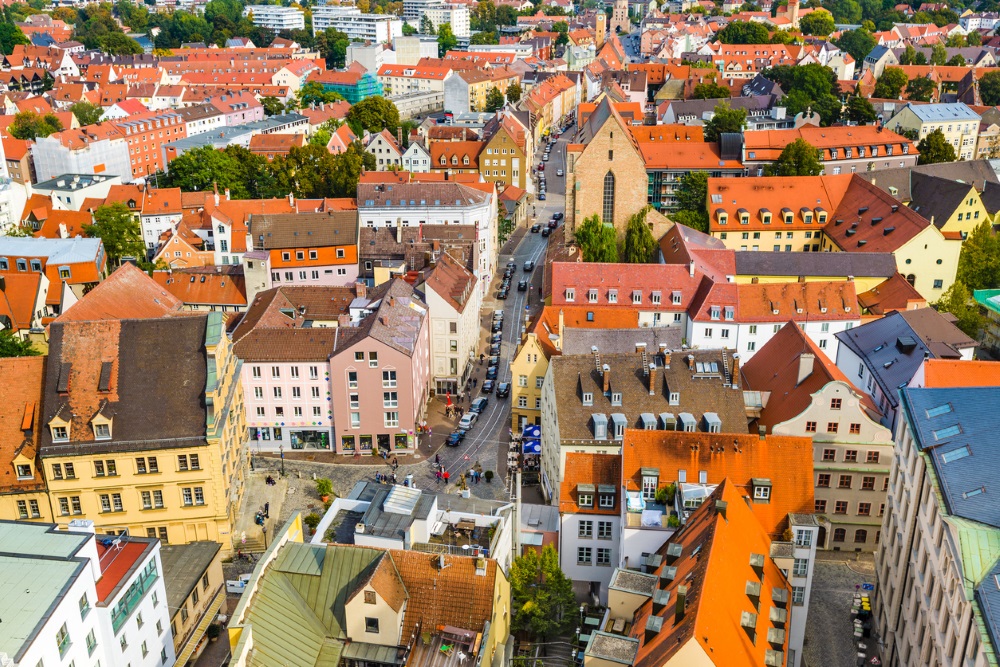
Germany
Germany might not be the first place you’d think of when considering potential retirement locations in Europe, but if you are looking for somewhere that mixes the best of both east and west Europe then look no further.
If you do make the move to Germany, you should expect to be enchanted by its vast forests and its many fairy-tale castles, befitting what was the seat of European power through much of the medieval era.
Although Germany’s economic prospects are also far better than some of its neighbours, it still enjoys some of the lowest average house prices in Europe, making Germany an enticing choice for those on a budget.
The Second World War and the events that followed it have led modern Germany to become one of the most accepting and open societies in the world, a place in which you can be expected to be welcomed into the community without hesitation.
Germany also lives up to its reputation for efficiency and forward thinking, with the government’s focus on environmental issues and cutting carbon emissions resulting in some of the most effective public transport systems in the world, allowing you to explore the vast country without need for a car.

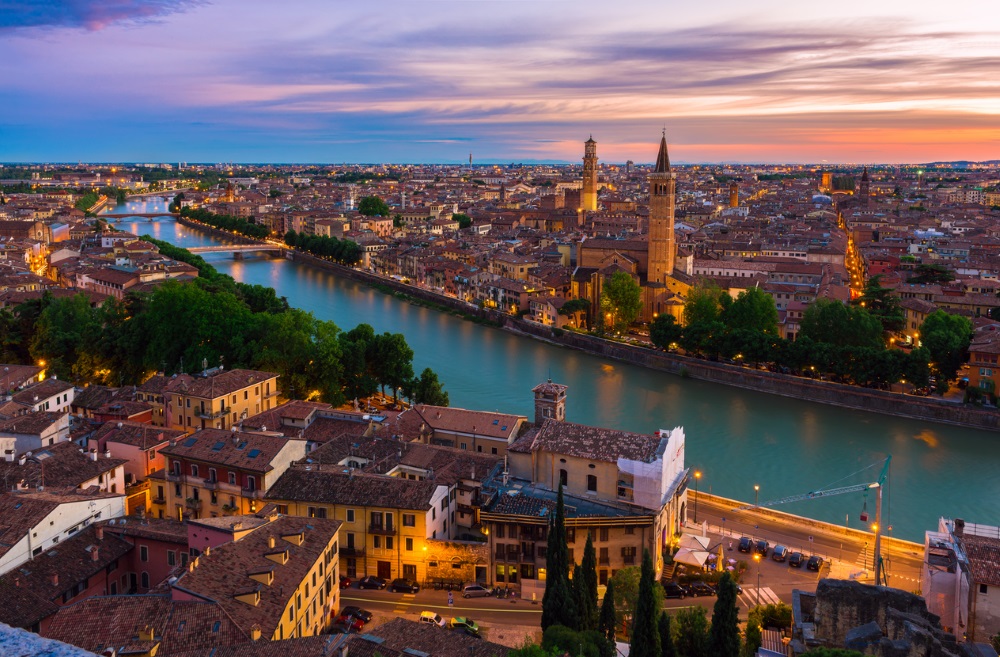
Italy
While living in Italy can certainty be a costly endeavour if you’re dead set on residing in one of the major northern cities such as Florence or Venice, (and let’s face it who wouldn’t want to live there if you could afford it?) there are certainly more reasonably priced locations to choose from.
Oddly enough the further south you are willing to settle the cheaper living in Italy can become, despite the weather becoming warmer and the beaches being quieter. This warmer climate also translates into a lower cost of living during the winter as well thanks to your heating costs being dramatically reduced.
The country as a whole, which is nearly entirely enveloped by the warm and welcoming Mediterranean Sea, is full of rustic charm, with many areas in the countryside remaining largely untouched by the hustle and bustle of modern city life.
Plus, wherever you are in Italy you’ll only ever be a few hours away by train from some of the most culturally rich cities in the world, where you can enjoy the fine cuisine, architecture and style that Italy is famed for.

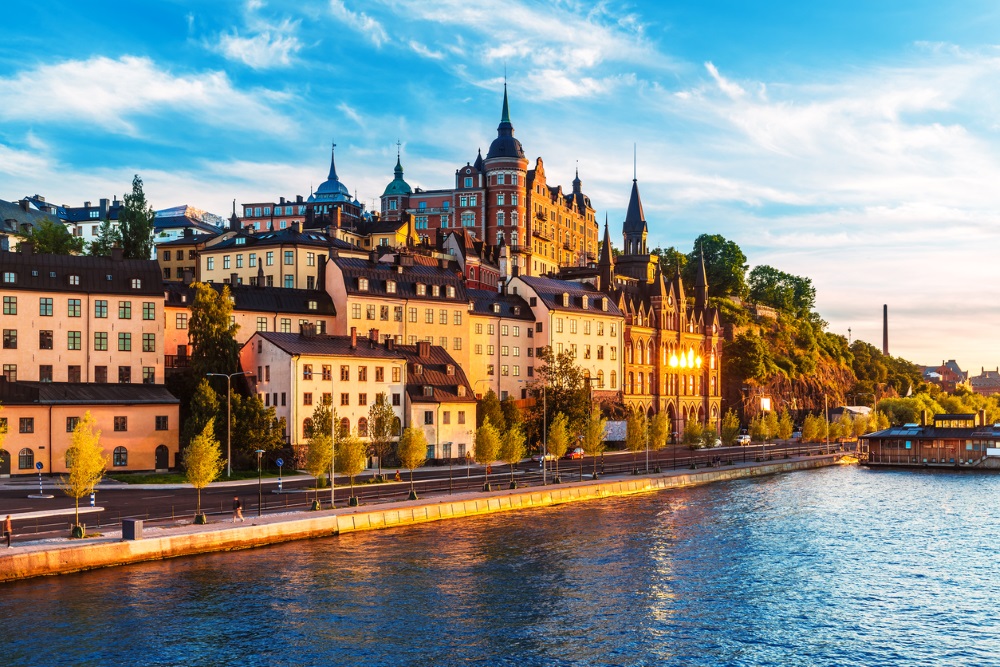
Sweden
Sweden is a very different country to most of the others on this list, with its cold northern climate being a far-cry from the sunny coasts found in the south, but what the country lacks in sunlight it more than makes up for with its stunning geography and clear air.
While the Scandinavian country can be quite expensive thanks to its higher tax rate, it more than makes up for it by offering an unbeatable standard of living, with most residents happy to pay the extra tax in exchange for the great services and benefits offered by the state.
Sweden also boasts one of the highest ranking healthcare systems in the world, thanks to impressive patient wellbeing and efforts by the state to actively tackle the underlying issues behind medical ailments, most of it covered by public funding or charged at a very reasonable price.
English is also widely spoken in Sweden, with a 2005 survey by Eurobarometer reporting that 89% of Swedes surveyed spoke English to some degree. The lack of linguistic barriers can help you navigate your way through day-to-day life with relative ease.

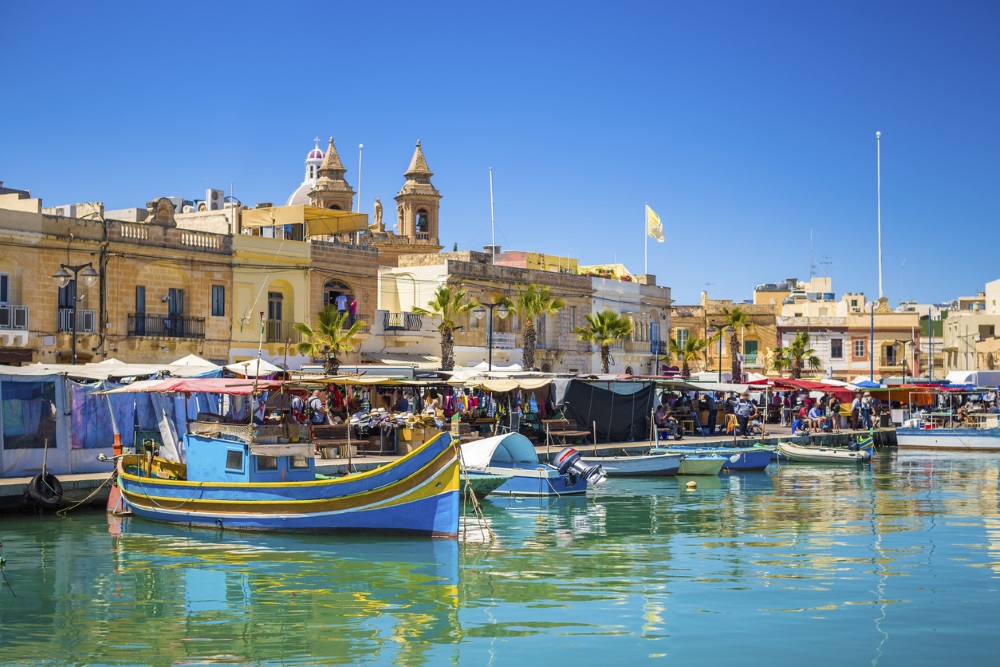
Malta
The English speaking five-island archipelago of Malta is found just 100 miles south of Sicily and despite being the smallest country in Europe, has increasingly found itself topping many lists for top retirement destinations in recent years.
You will be hard pressed to find a country that soaks up as much sunshine as Malta, with even the winters often warm enough to for you to enjoy the crystal clear waters of the Mediterranean Sea surrounding it.
Surprisingly however life on this sunny island paradise is remarkably affordable, with rent in the tiny capital of Valletta as low as €500 a month in some areas, and with a cheap transport system that can get you between the islands quickly, there is little need for the additional cost of a car.
Malta is also home to three UNESCO World Heritage sites, among dozens of other historical landmarks, which combined with the multitude of vibrant festivals held throughout the year should ensure that you’re never bored.
However you may wish to look somewhere else if you are looking to escape the hassle of city living as according to the UN, Malta is almost entirely urbanised and is one of the most densely populated countries in the world.

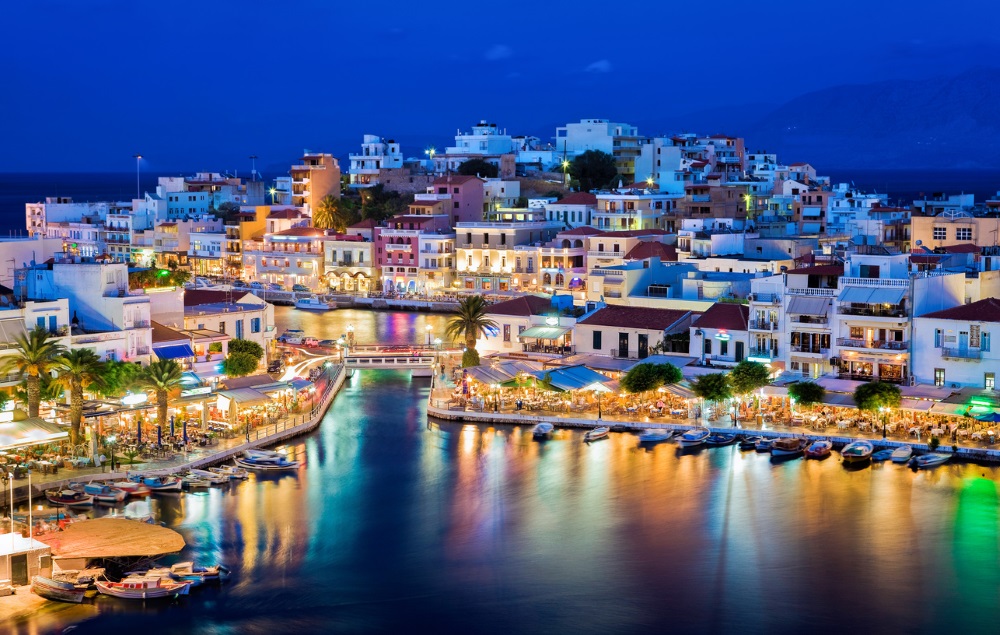
Greece
While the Greek economy may have suffered in recent years (causing some retirees to shy away from moving to the nation) those willing to overlook the country’s financial concerns are likely to find that it still has a lot to offer.
As the birthplace of democracy and home to one of the largest empires in history, Greece hosts some of the greatest cultural and historical works in the world, with many buildings of the classical era still standing today.
The cost of living is also a great draw for expats as everyday items like food and drink are noticeably lower in Greece than elsewhere in the EU, with a loaf of bread on average costing €0.83 compared to €1.32 in France.
While English is not widely spoken in Greece, the local population are renowned for being exceptionally welcoming and friendly and it shouldn’t take long to integrate into the local community – particularly if you’re willing to brush up on your language skills.
Although access to your UK pension means you shouldn’t be impacted by the Greek financial crisis as locals, you may want to rent property (rather than purchasing one) until the situation stabilises.

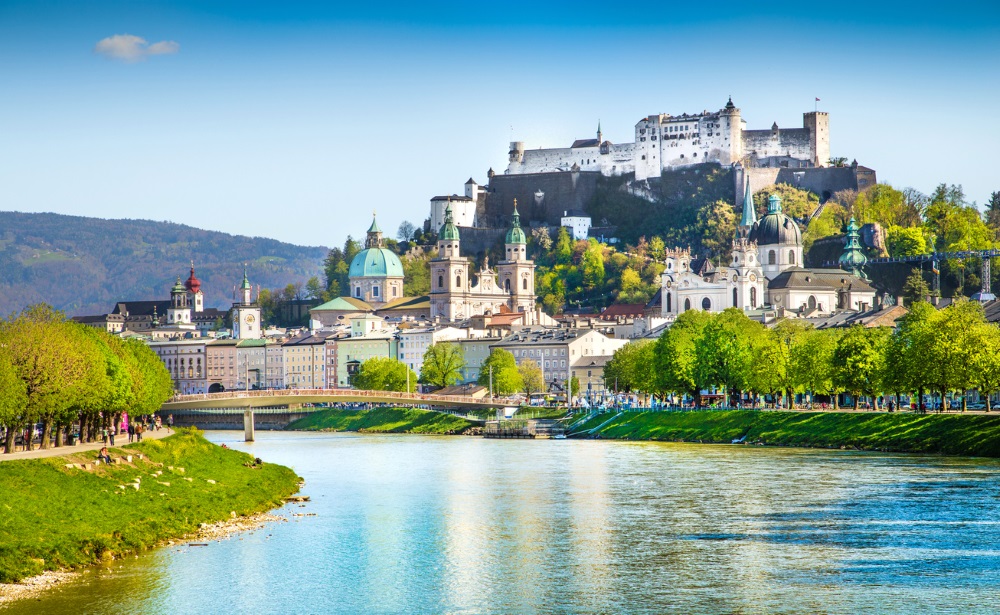
Austria
Often overlooked by retirees who tend to focus on the neighbouring Italy and, to a lesser extent Germany, Austria grants a unique chance to spend your retirement surrounded by the Alps and the fresh mountain air.
As one of the comparably richest countries in the world, Austria also scores highly on the standard of living index, with those living there enjoying well developed infrastructure and world class healthcare. Despite this, the cost of living is still lower than in many other European nations.
While the landlocked country has no beaches or access to the sea, those looking to enjoy more wintery pursuits such as skiing will certainly make the most of the mountainous terrain offered by Austria.
Coffee lovers will also find themselves in heaven as Austrians take their coffee very seriously, with the many Viennese coffee houses that can be found in the capital being recognised as a cultural institution.
Austria offers a very varied pace of life depending on where you wish to live, with the hustle of the historical city of Vienna contrasting perfectly with the quiet and peaceful life offered in one of the many rural villages that dot the alpine landscape that surrounds the country.
So there you have it, our pick of the top ten European retirement locations. If you want to find out more about any of the nations listed above, remember to check out our free guides.

Clare is a new contributor to Everything Overseas. She writes about celebrity homes for sale or property prices in major cities or countries around the globe. One of her recent stories included predictions for the Australian housing market.
More articles by Clare Sandford | View all our authors
Or you can read more about your chosen country:
